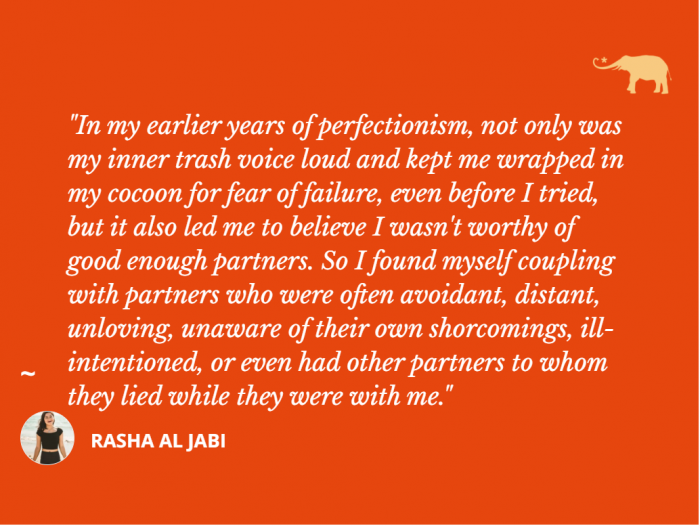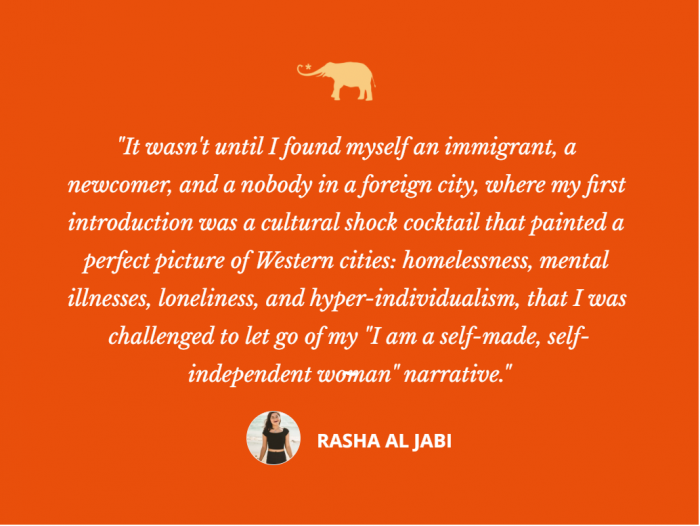In the Buddhist cosmology, Pretas, or the “Hungry Ghosts,” refers to a psychic domain in which the human mind is tormented by desires that could never, ever be satiated.
In the mythology, the hungry ghosts are portrayed as monster-like creatures, with scrawny, little necks, huge bellies, and tired, desperate-looking eyes, doomed by imminent starvation and seeking of external stimuli in order to soothe its perpetual hunger, however temporary the fix might be.
This cyclical state of starvation, desire, seeking, temporary satisfaction, and starvation again is a vicious cycle that can go on for eternity. It is the state of being that Buddhism refers to as Samsara, simply meaning the cycle of death and rebirth—whether actually through the notion of reincarnation or metaphorically through being stuck in what feels like an eternal, hellish state of mind that is ripping, yet is hard to escape, change, or accept.
But modern societies, especially the Western world, likes to take things to the extreme. When we apply an example of the hungry ghosts, we might conjure an image of a homeless person, sitting on the sidewalk, begging for a few spare change to find his next quick fix. Or we might think of that one friend we know who had promised us that this would be their “last drink,” following a wild night out that eventually turned them into an angry, emotional mess. Or the sex addict whose spouse caught them cheating, but who can’t quite seem to figure out their inability to change their addictive behavior.
But what about the other less subtle forms of addiction, particularly the ones our society tends to praise, applaud, and even encourage? Like maladaptive perfectionism and addiction to achievements and our never-ending drive to do more, accumulate more, and be more? Doesn’t that, too, qualify as a criteria for the hungry ghosts?
In a previous essay, I’ve written about how ever since I was a little girl, I’ve had this insatiable, inexplicable hunger to be perfect. I was your typical Type-A personality child, whose entire childhood identity revolved around achievements. Anything short of a straight A in any tests would mean a total and utter collapse of my identity. I would often feel like a complete failure, not just in front of my parents and peers, but also deep within myself.
Coupled with a spectrum of Obsessive Compulsive Disorder (OCD), an anorexia nervosa and body dysmorphia that I had developed when I was 12, I speculate that my need to control my internal world by creating “the perfect image” stemmed from being a middle child who had suffered neglect and a deep sense of alienation and loneliness for the greater majority of my upbringing.
Later in life, as I began to explore the world of romantic relationships, my addiction to perfectionism manifested as a desperate need to look perfect, have the right body, and pretend to be “easy going,” a role which was hard to fit into as a person with an anxious-attachment style, who grapples with anxiety and occasional depressive episodes.
As awareness around the intersectionality of sexuality, identity, and generational trauma became prevalent in mainstream media and among the mindfulness communities, more of us understand now that unless parents learn to have a grip on their own traumas, which was passed on to them from their parents, and passed on to their parents from their grandparents, chances are they will indefinitely inflict those powerful, painful dynamics on to their children.
I believe this is exactly what has triggered the neglect I inherited as a child, and I sense that it also explains many of our individual and collective traumas too.
Developmental psychologists explain that as children, we do not have the awareness or mental capacity yet to understand that adults—the people whose very existence, subtle moods, and well-being determine our own survival, can experience distress for reasons that are beyond our control. And unless we were graced to grow up with one or two adults who were able to self-regulate themselves in order to regulate their child’s distress and provide them with safety, I suspect that many of us have had to adapt to unhealthy levels of stress by learning how to become “good” in order to earn parental love and approval.
The greater the degree of external chaos, whether in the form of neglect, abuse, or violence, the greater our hunger to be perfect will be, and the more likely it would stick with us later in life.
But it doesn’t simply end in our childhood.
As we grow into independent adults, we find messages all around us that encourage the need and strive to push through, to be other than who we already are, to change, to have more, and to be perfect—as if they were all conditional prerequisites to attain happiness in life.
To clarify, I am not opposing that our desires and need for change cannot be healthy. In fact, as it goes in the Buddhist notion and stoic philosophy, change is the only constant, and with that change, we learn how to bend, twist, turn, conform, and adapt until our time on Earth is over.
In normal circumstances, desires can be natural, wholesome, and a necessary part of the fabric of being human. They allow us to survive, thrive, and foster genuine relationships, connections, and communities with one another. But in our fast-paced, modern world that is shifting at a greater speed than we’ve ever experienced in previous times, we are no longer giving ourselves the time nor space to integrate those changes and turn them into enriching life experiences.
Perfectionism, a childhood adaptation tool, coupled with 24-hour advertising messages and a profit-driven consumerist culture all push the hungry ghosts in each one of us to constantly seek external validation in a false, illusionary attempt to be perfect.
Unknowingly, we have created a culture in which we perpetuated the idea that the only people who count in the world are celebrities and the rich, who have become the benchmark for idealism around which we carefully craft our goals, achievements, and sense of being and self-worth in an attempt to create the perfect life.
Journalist Johann Hari, the New York Times bestselling author of Chasing the Scream, has perfectly outlined this idea in his phenomenal book, Lost Connections: Why You’re Depressed and How to Find Hope, when he said:
“I began to wonder—especially as I interviewed many depressed people—if depression is, in part, a response to the sense of humiliation the modern world inflicts on many of us. Watch TV and you’ll be told the only people who count in the world are celebrities and the rich—and you already know your chances of joining either groups are vanishingly small. Flick through Instagram feed or a glossy magazine, and your normal-shaped body will feel disgusting to you.”
But if, as Hari suggested, we know that our chances of joining either groups—celebrities and the elite are slim—then why do we continue to idealize and strive to become like those we know we could never belong to, or maybe even don’t have any desire to join in the first place?
Why do we contribute to an outdated hierarchical system that tells us that those on top are the only ones who matter, while those in the bottom, who aren’t just the homeless or the substance dependents or the poor, but includes so many of us who feel inadequate in who we are—in our skins, in our bones, in our bodies, in our minds, in our hearts—no matter what we do or how much we accomplish?
Why do we succumb to this unrealistic internal pressure we place on ourselves, when we don’t even know the full background stories about other people’s lives?
Why do we drown ourselves in harmful coping mechanisms like drugs, alcohol, or meaningless relationships in a hopeless attempt to cope with the loud ringing of the imposter syndrome, or as I like to call it: the inner trash talk?
How many of us have played this hypothetical scenario through our heads a million times before: if only I had (insert your choice of object here), I would be happy, only to realize that we’re still unhappy—even after obtaining the thing that promised to provide us with eternal state of bliss? We find ourselves running around in circles, like a dog caught in chasing its own tail.
How many of us have quit, given up, reached the point of breakdown and even suicide before we even got started because we believe we don’t amount to anything—or even deserve to be happy?
How many of us have lived years and decades imprisoned in our own minds—where self-degradation and humiliation are our only cellmates, as a punishment for our failure to achieve perfectionism—more than we lived in the real world?
Just like addiction to hard drugs and alcohol, perfectionism is the hungry ghost’s many attempts to compensate for the lack of our basic needs—safety, bonding, love, and our own values—from being seen, recognized, validated, and met.
At its best, perfectionism is a self-destructive, self-fulfilling prophecy that feeds the cycle of desire and self-degradation: I want to be perfect, but I’m a fraud/failure who amounts to nothing; therefore, I could never be perfect, so I might just as well quit trying. And we can get locked in this cyclical scenario, or as the Buddhist call it, Samsara, for eternity.
At its worst, it can lead to challenging, maladaptive behaviors including procrastination, a tendency to avoid challenges, a rigid all-or-nothing thinking, toxic comparisons, lack of creativity, and an avoidance of meaningful, fulfilling relationships. It is a complete shutdown of the human system and its natural desire to reach out, touch, feel, and share with another human.
In my earlier years of perfectionism, not only was my inner trash voice loud and kept me wrapped in my cocoon for fear of failure, even before I tried, but it also led me to believe I wasn’t worthy of good enough partners. So although I craved meaningful connections and did all I could do to appear on the outside like a sound, intelligent, and caring human being, I found myself coupling with partners who were often avoidant, distant, unloving, unaware of their own shortcomings, ill-intentioned, or even had other partners to whom they lied while they were with me.
In my personal journey, it took me multiple meltdowns, a global pandemic, a resurfacing history of complex trauma, and a relocation to a new country where I knew no one, and where I spent my first six months in lockdown, stuck between the four corners of a basement apartment, in an inhospitable environment, to finally realize the absurdity and unrealistic demands of my own “perfect” self.
It wasn’t until one of my meltdowns had left me sick and in bed for a week that I knew I had to call a trusted friend and articulate the pain I was feeling was trapped inside me yet had no place to go.
It wasn’t until I found myself an immigrant, a newcomer, and a nobody in a foreign city, where my first introduction was a cultural shock cocktail that painted a perfect picture of Western cities: homelessness, mental illnesses, loneliness, and hyper-individualism, that I was challenged to let go of my “I am a self-made, self-independent woman” narrative.
It wasn’t until I experienced the ripping sensations of loneliness, alienation, and unbelonging that I learned to appreciate the joys of spontaneity and letting there be room for things to mould into shapes other than the ones I had planned for or anticipated.
In my own recovery process, there were two essential things that have helped me sit with and simmer in the sharp pains of unrealistic perfectionism:
1. Practicing loving-kindness (Maitri)
I slowly cultivated a sense of gentleness toward myself through a consistent, daily meditation practice. Whenever those feelings of inadequacy would haunt me, I would close my eyes, place one hand on my heart center, and feel the shallowness of my breath each time my thoughts got heavier. I would then remind myself that I am loved, nurtured, and have all the tools I need to get to where I need to—but only if I really wanted to.
Sometimes, I would practice this alone and write down my own choice of mantra or kind words or affirmations. And on occasion, I would pick a guided meditation led by a teacher whose voice resonates with me.
2. Learning how to bend (like the metaphor of the willow tree in the wind)
In one of her YouTube monthly workshops, the Psychotherapist Esther Perel, refers to bending as “what we’re called to do when we can’t change our circumstances; when we can only change the way we react to them.”
I learned this process not through regurgitating pieces of wisdom that aren’t applicable in real-life, but through using my body as a safe container to practice and develop resilience. Except this time, my resilience wasn’t coming from a place of self-degradation or punishment or pushing for an outcome, but from genuine kindness in knowing that I have everything I need to endure the pain I feel within my soul, instead of shielding myself or escaping from it.
I believe that the metaphor of the hungry ghost represents the inner child in each one of us who lives in an adult body, but who never really received the nurturing, love, or care it requires to grow and endure the complex demands of the modern world.
It is the part of us that is already suffering in cyclical feelings of shame and hopelessness, and it certainly doesn’t need us to whip it further with a leash.
Healing takes a tremendous degree of presence, strength, resilience, kindness, compassion, empathy, and a willingness to start somewhere—however messy and imperfect that place might be.
It requires the courage to step into the chaotic territory of doing the inner work, while letting there be a sense of humility, humor, and letting go when it doesn’t always yield the results we had hoped for.
It is a process of unlearning what we’ve been taught, what we already know, and what we strive for, and accepting that things may not always end up our way. And being okay with knowing that.
And maybe, it requires bending a tiny bit each time and leaning into the pain of vulnerability—just like the willow tree that gracefully dances in the direction of the wind.
If you enjoyed reading this essay, or it resonated well with you, let me know how you cope with the pains of perfectionism and the feelings of “never good enough”.
Resources:
https://www.psychologytoday.com/ca/blog/finding-true-refuge/201709/de-conditioning-the-hungry-ghosts
https://www.psychologytoday.com/ca/basics/perfectionism
https://www.lionsroar.com/what-are-hungry-ghosts/











Read 18 comments and reply